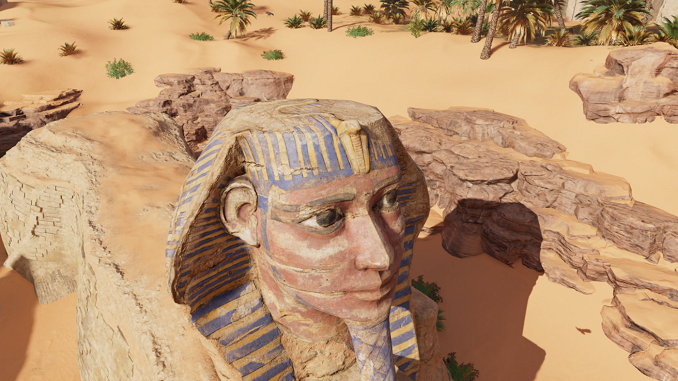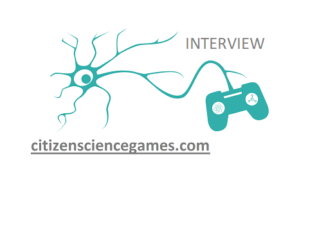
How video games can teach and empower good
This article was written by Kathleen Yin and published on Rolling Stone.
I had my first exposure to the consequences of deforestation when I was 14.
It was during summer break, and I had been invited to a friend’s house, where she was eagerly showing off Warcraft 3, which she had just purchased. After a little while of having me watch, she offered to let me have a go. I happily accepted, then started trying my hand at building my human colony from scratch – with no idea of what I was doing.
I managed well enough at first, but after a while, I started to notice a problem. The villagers I assigned to be woodcutters had been too efficient, cutting down all the trees nearby. Now, not only did my villagers have to walking far, FAR away to get more wood, the vast stretches of barren tree stumps all around my town looked quite pitiful.
Thinking that I needed to be conscientious about my logging activities, I ordered my villagers to stop gathering wood, in the hope that the trees would come back.
Unfortunately, an enemy army invaded soon after, and I lost spectacularly – mainly by running out of wood.
Every game teaches you something. This unfortunate experience in Warcraft 3 taught me to be wary of trees in games. From then on, I’ve always eyed trees that could be chopped down in any other city-building game apprehensively, asking myself: “Are they going to come back, or will I lose these resources forever if I cut them down?”
You could argue that Warcraft 3 taught me the value of resource management, and just how long it takes for a tree to grow back. This, in a way, illustrates the kind of learning processes players experience in the course of playing serious games – my personal passion.
Serious games, defined as games whose primary purpose is not to entertain, are quite an odd animal among their brethren. While they are certainly games, leveraging the same principles of play for effective stimulation and immersion, what entertainment they provide serves a greater goal: passing along some information or helping the player practice some skill.
Without play, they would not be games. And without a clear vision of the greater purpose they serve, they often devolve into a convoluted mess whose message and mechanics are at odds with one another.
Without a greater purpose, serious games would not be ‘serious’, but that’s a bit of a misnomer, since it implies that games by default are ‘not serious’ – a statement which couldn’t be farther from the truth. Just ask anyone who is completely absorbed in the Magic Circle of a game, be it Halo, Destiny, the Legend of Zelda or any other title; for a short time the game and everything in it is deadly serious, regardless of how silly it might all seem you step back out into reality.
For example, I vividly remember smashing buttons with dead seriousness in my friend’s lounge as we played Tekken 4, and the Tekken franchise certainly does not qualify as serious games.
What sets a serious game apart are its goals – goals that extend beyond learning a game mechanic or saving a virtual world.
For this, it is usually necessary to make something that players can have fun with, with enough freedom that they can experiment and learn. The Oregon Trail, one of the most popular such titles, exploited this freedom to its fullest advantage. While the game itself was fun enough for the first few rounds as the player prepared their party for an arduous journey into the American West, the routine of buying goods and haggling would have quickly become stale, had players not been able to choose what to name their characters and make meaningful choices for them. In a sense, Oregon Trail stayed fresh and enjoyable from 1971 to the early 2000s because players got to use it to tell a story, which may or may not involve a bit of inane giggling as ‘Elrond’ falls out of a wagon or ‘Voldemort’ dies of dysentery.
Rather than a textbook covering the history and geography of American’s wild west, Oregon Trail was a living, breathing canvas, upon which the journeys of millions of players came to life as rich, colourful experiences which are remembered far longer than a book studied for a test.
Nor was it alone in doing so.
Titles like Minecraft, Portal, Civilization V and the Discovery Tour mode of Assassin’s Creed: Origins, do the same, giving the player enough agency to learn through trial and error, experimentation and observation. And learn they do, even – in the best of cases – sometimes going on to seek out information about the subject matter even after the play experience has long ended.
In the last two decades, a revolutionary breed of serious games has arisen, one that takes a player’s desire to experience something meaningful and channels it directly into furthering scientific research.
The most famous of these citizen science games is the University of Washington’s Foldit, a game that asked thousands of players around the world to fold proteins according to certain basic rules that correspond to real-world chemical restrictions. It may sound simple, but its community of 50,000-plus players from around the world have even deciphered the structure of a vital protein receptor of HIV.
More successful citizen science games followed, all of them paying great attention to the creation and maintenance of active and engaged player communities, where players can give each other tips, rank each other’s results, or even create memes and humorous posts about the contents of the game. Today, these games bring together millions of players of all ages and ethnicities, involving them in real-time adventures that are not only fun and meaningful, but advance the horizons of science.
At GDC 2018, I will be hosting a panel featuring some of the greatest pioneers at the intersection of citizen science and gaming today: Amy Robinson Sterling of Princeton’s Eyewire – a game which maps the brain, Attila Szantner of MMOS, whose Project Discovery integrates citizen science into EVE Online, and Antoine Coutrot from the team behind Sea Hero Quest, the mobile game that lets players contribute to our understanding of dementia.
We will be talking about the future for serious games, covering how designers can better leverage the power of player communities for social good, how important mechanics can be integrated into larger commercial games, and how we can ensure that future games will learn from the mistakes – and successes – of the past.
A lifetime ago, I was a community pharmacist frustrated by the inefficiency of patient education, participating in my first hackathon. I will never forget how the team I worked with, a team of researchers, insurance managers and business consultants, all shed their corporate masks and jumped up and down like little children as we created something together – designed a game together. That sense of joy and exhilaration, that enthusiasm that cuts across lines of age, gender, race, and creed, is something I have never forgotten. It is the standard to which I hold serious games, because I believe in what they can do – in the change they can make in the world by touching the lives of players and letting them become part of something greater than themselves.
Or at the very least, by creating experiences we won’t forget.
After all, I’m still wary of trees in games – even if I have yet to lose another game due to poor resource management. Nor, for that matter, have I ended up with another screen full of tree stumps.
This is part of a series of columns written by developers speaking at the Game Developers Conference in March.
Kathleen Yin is holds a PhD in pharmacology and is the founder of Serious Games Australia and New Zealand, the only professional network that presents all who work on serious games in the Australia and New Zealand region. She is also a member of the Steering Committee of the IGDA’s Serious Games Special Interest Group, and also has her own little indie studio in her off time. Her day job is with Macquarie University in Sydney, Australia, where she is a health informatics researcher focusing on the impact of serious games in health. She will be chairing the panel Scientific Research Using Games: Using Player Power for Good at GDC.


